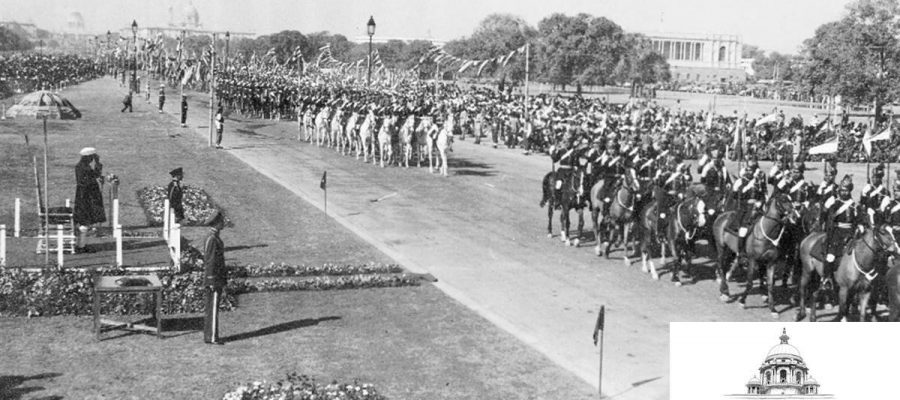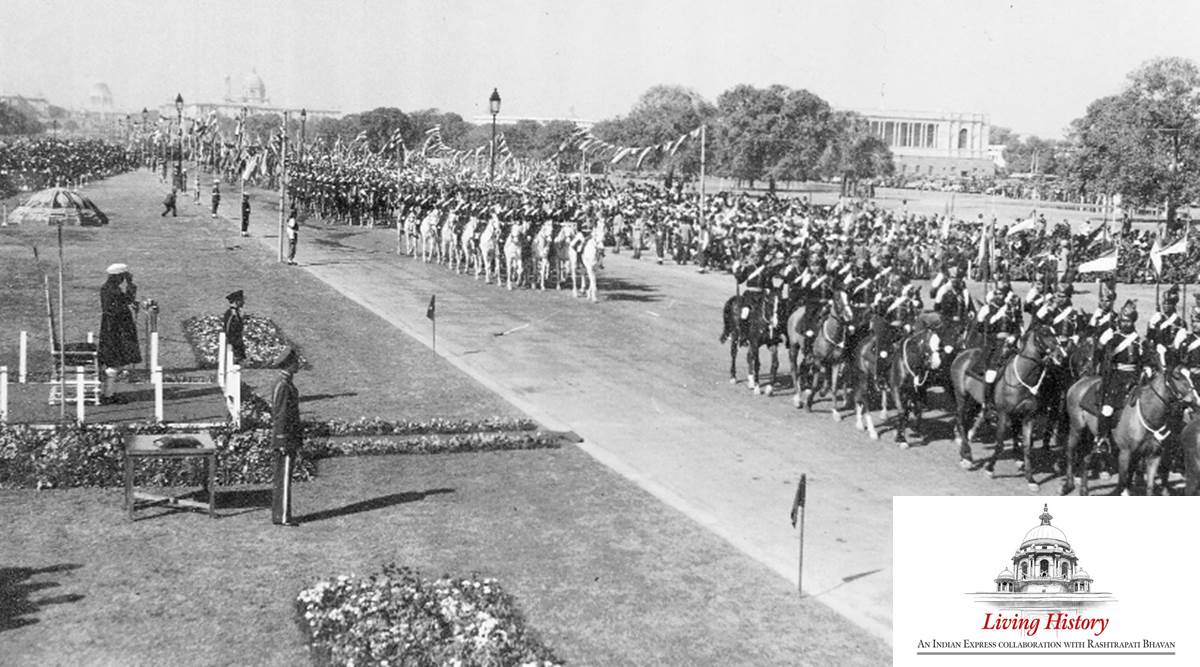The annual presidential address on the eve of Republic Day is an occasion for introspection and affirmation of our constitutional values
By Praveen Siddharth
Occasionally, a televised event can cause a lump to rise in the throat, due to an overwhelming feeling of national pride, like when our cricket team wins a major tournament overseas. But something that occurs more predictably is the president’s annual address on the eve of Republic Day. We watch it on our televisions, not merely as spectators but as participants in the exercise of nation building that we embarked upon collectively in 1950.
Many nations around the world claim to be republics, although some are so only in name. What sets us apart is that our claim to being the Republic of India is renewed and tested each year by our head of state through a televised address. Other heads of state also give televised speeches, the most famous, perhaps, being the annual Christmas address by the British monarch, a tradition since 1932, or the US President’s state of union address. But these are more in the form of personal reflections or accounts of actions taken during the year. The address by our president, on the other hand, is an occasion for collective introspection, a mirror held up to our conscience by our first citizen.
Just as our independence was the result of decades of struggle, our birth as a republic was also a product of years of labour and resolve. The midwives — the members of our constituent assembly — enacted the constitution on November 24, 1949, but they waited until January 26, 1950 to proclaim it as the guiding document of our nation. During the 1929 Lahore session of the Indian National Congress, it was decided that this date will henceforth be celebrated as our Independence Day. So, when our constitution was finally ready, the members of the constituent assembly did not want to lose the significance of this date and so waited until January 26 to announce the birth of our republic.
In many ways, our Republic day is more significant than our Independence Day. India may have become free from British rule on August 15, 1947, but life was breathed into our young nation only when the constitution was adopted on January 26, 1950. In the intervening period, we were a British dominion, administered under the Government of India Act, 1935. Our head of state was King George VI, represented by the governor general for India, and our head of government, Jawaharlal Nehru, was acting as the secretary for state. Once we gave ourselves our constitution, we took our first steps towards defining our identity as a sovereign democratic republic.
On January 26, 1950, at 10.18 a.m., in the Durbar hall of the Rashtrapati Bhavan (then called the Government house) governor general C Rajagopalachari read out a proclamation announcing the birth of our republic. This was followed by the swearing-in of our first president, Rajendra Prasad, and our first prime minister, Jawaharlal Nehru and his cabinet. President Rajendra Prasad, in his first Republic Day speech, which was also his acceptance speech, announced, “Today, for the first time in our long and chequered history we find the whole of this vast land… brought together under the jurisdiction of one constitution and one union which takes over responsibility for the welfare of more than 320 million men and women who inhabit it”.
From then on, every year, our presidents have sought to remind us not only of how far we have come but also how far we are yet to travel in our collective pursuit of the ideals spelt out in 1950. And in the course of this journey, as president S. Radhakrishnan emphasised in his 1967 address, “Our ties subsist because they were not of iron and steel, or even of gold, but of the silken cords of the human spirit”.
At the same time our presidents have also reminded us who the real owners of this enterprise are. Our ambitions and dreams are no longer enslaved by the wishes of a few thousands in distant foreign shores. We are the masters of our own destiny. As president R Venkatraman declared in his 1990 address, our Republic Day was the day “that the citizens of India were guaranteed fundamental rights to life and liberty and were freed from exploitation and discrimination. Above all, it was on this day that every citizen of India emerged as the sovereign of the country through the adoption of universal adult franchise”.
Our presidents have also implored us to shun parochialism. In his 1997 address, President Shankar Dayal Sharma appealed, “we must all develop a broad nationalist outlook whereby we view every issue not in a limited, narrow or parochial perspective but in the context of the good of the nation. We must remain deeply conscious always that progress by individuals or groups in society is possible and meaningful only with national advancement”.
Our presidents have also recounted from their personal experiences the lessons life has taught them. In the gurukul of our republic, we would do well to listen and learn from their wisdom. In his 2007 address, president APJ Abdul Kalam recalled how, after he had flown a Su-30MKI fighter plane the previous year, a young man had asked him if he had felt fear at any time during the flight. The president narrated: “I told the young man, all the 40 minutes of the flight, I was busy on the controls and instruments… I was continuously busy in the flight operations and I didn’t have time to allow fear to enter into me. Now, dear young friends who have assembled in front of me and the nation, I have a message of courage for you.”
The annual presidential address is composed of the president’s own views and thoughts, not that of the executive. As a result, presidents have used this opportunity to highlight what they felt was the need of the hour for our country. President Pratibha Patil, speaking on the eve of our 62nd Republic Day, said, “26th January is a very significant date in our nation’s calendar, when we celebrate the establishment of free India as a Republic based on the ideology of justice and equality…It must also be an occasion when we rededicate ourselves to maintaining harmony, peace and brotherhood”.
At the bedrock of every Republic Day address by the president has been the constitution and the basic principles it enshrines. Our independence would have been empty if we had not known what we needed to do with our hard-won freedoms. President Pranab Mukherjee said it best in his 2013 address, “India did not win freedom from the British in order to deny freedom to Indians. The Constitution represented a second liberation, this time from the stranglehold of traditional inequity in gender, caste, community, along with other fetters that had chained us for too long.”
Finally, our Presidents have also prompted us to not be content merely with looking at what benefits us a country but also strive to make the world a better place. On the eve of our 69th Republic Day in 2018, President Ram Nath Kovind, in his first Republic Day address, set our national goals many notches higher. He said, “The highest stage of India’s nation building project is to contribute to building a better world — a composite and cohesive world, a world at peace with itself and at peace with nature.”
Whether they act as nudges for introspection, guiding lights that illuminate our path or milestones that measure our progress, the addresses of our presidents have all had one thing in common: timelessness. What was said half a century ago still holds good today. Our presidents have been the voice of our collective conscience, and, so, when we listen to the President’s address tomorrow, we would do well to remember that we are only listening to our own inner selves.
(Praveen Siddharth is private secretary to the President of India)
Source: Read Full Article


